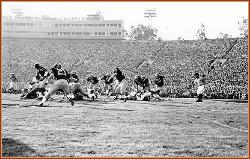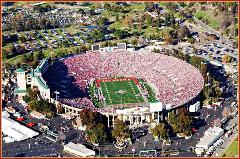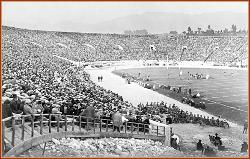









In 1911, new Tigers owner Frank Navin ordered a new steel-and-concrete baseball
park on the same site that would seat 23,000 to accommodate the growing
numbers of fans and on April 20, 1912, Navin Field was opened, the same day as
the Boston Red Sox's Fenway Park.
Over the years, expansion continued to accommodate more people. In 1935,
following the death of Frank Navin, new owner Walter Briggs oversaw the expansion
of Navin Field to a capacity of 36,000 by extending the upper deck to the foul poles
and across right field. By 1938, the city had agreed to move Cherry Street, allowing
left field to be double-decked, and the now-renamed Briggs Stadium had a capacity
of 53,000.
Also in 1938, the NFL's Detroit Lions began a relationship that allowed them to host
their home games at Briggs Stadium. They would play there through the 1974
season, before moving to the Pontiac Silverdome in suburban Pontiac.
In 1961, new owner John Fetzer took control of the stadium and gave it its
permanent name: Tiger Stadium. Under this name, the stadium witnessed World
Series championship seasons in 1968 and 1984.
The stadium gained a reputation in the 1970s and 1980s for its aging facilities and
obstructed views, but was beloved by local baseball fans for its historic feel. Box
and most reserved seats were close to the action. In 1977, ownership of the park
transferred from the Detroit Tigers to the City of Detroit. As part of this transfer, the
green wooden seats were replaced with blue and orange plastic ones and the
stadium's interior, which was green, was painted blue to match.
In 1992, new owner Mike Ilitch began many cosmetic improvements to the ballpark,
primarily with the addition of the Tiger Den and Tiger Plaza. The Tiger Den was an
area in the lower deck between first and third base that had padded seats and
section waiters. The Tiger Plaza was constructed in the old players parking lot and
consisted of many concessionaires and a gift shop.
After the 1994 strike, plans began to construct a new park, many campaigned to
save the stadium. Ground was broken for the new Comerica Park during the 1997
season.
On September 27, 1999, the final Detroit Tigers game was held at Tiger Stadium.
Following the game, an emotional ceremony with past and present Tigers greats
was held to mark the occasion. The Detroit Tigers moved to the newly constructed
Comerica Park for their 2000 season leaving Tiger Stadium largely unused.




